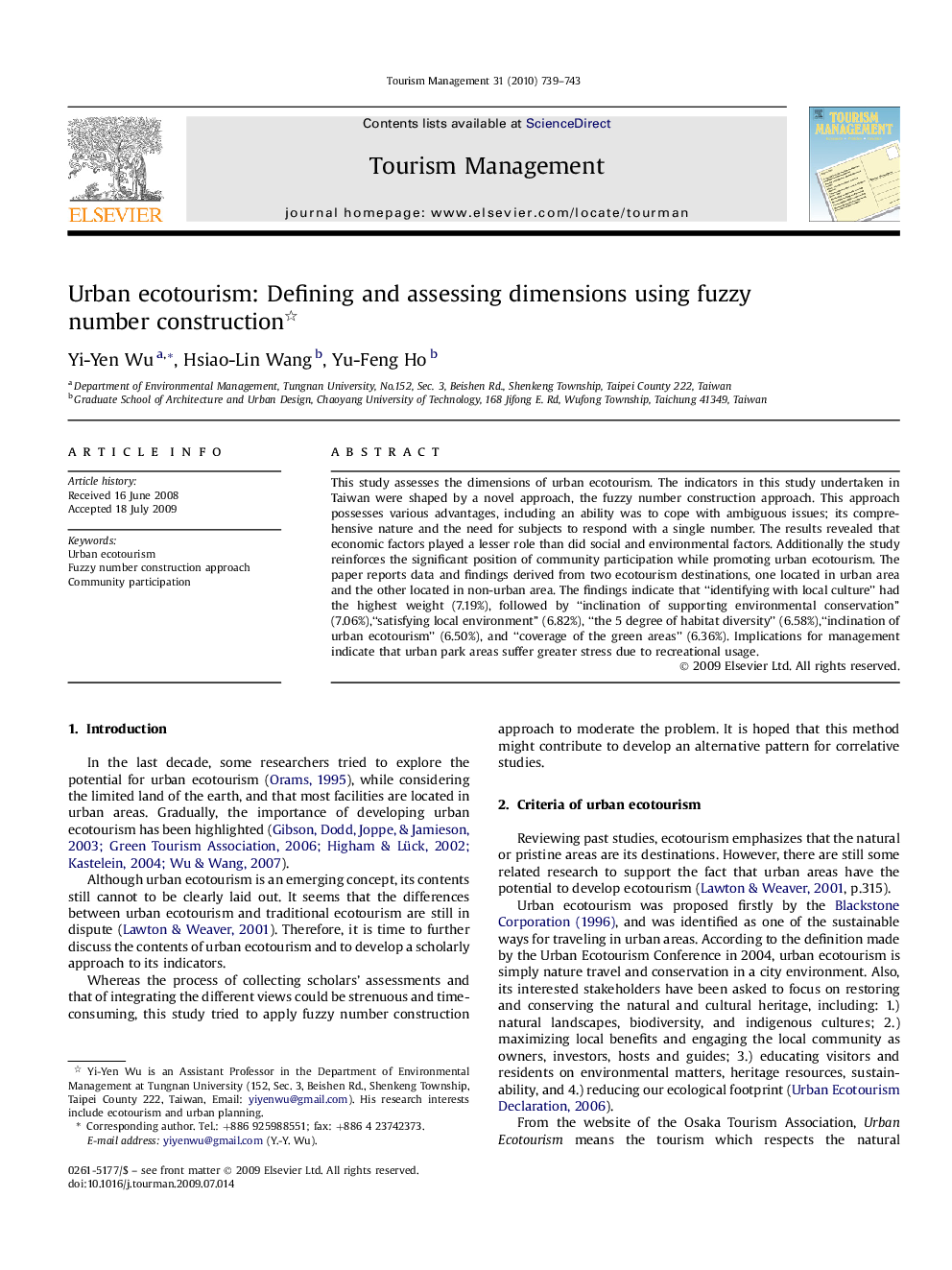| کد مقاله | کد نشریه | سال انتشار | مقاله انگلیسی | نسخه تمام متن |
|---|---|---|---|---|
| 1012611 | 939150 | 2010 | 5 صفحه PDF | دانلود رایگان |

This study assesses the dimensions of urban ecotourism. The indicators in this study undertaken in Taiwan were shaped by a novel approach, the fuzzy number construction approach. This approach possesses various advantages, including an ability was to cope with ambiguous issues; its comprehensive nature and the need for subjects to respond with a single number. The results revealed that economic factors played a lesser role than did social and environmental factors. Additionally the study reinforces the significant position of community participation while promoting urban ecotourism. The paper reports data and findings derived from two ecotourism destinations, one located in urban area and the other located in non-urban area. The findings indicate that “identifying with local culture” had the highest weight (7.19%), followed by “inclination of supporting environmental conservation” (7.06%),“satisfying local environment” (6.82%), “the 5 degree of habitat diversity” (6.58%),“inclination of urban ecotourism” (6.50%), and “coverage of the green areas” (6.36%). Implications for management indicate that urban park areas suffer greater stress due to recreational usage.
Journal: Tourism Management - Volume 31, Issue 6, December 2010, Pages 739–743